Home / Weather CATs / CATs Manuals / When You File Your Insurance Claim
When You File Your Insurance Claim
What Your Adjuster Will Do for You
Property & Liability Resource Bureau
3025 Highland Parkway
Downers Grove, IL 60515
630-724-2230
Introduction
Spring and summer storm season is guaranteed to damage structures in every state. Most of the damage will be minimal. But some of the storms will be spectacular and cause catastrophic damage from wind, hail, lightning, and flooding. With some planning it is possible to mitigate the possibly of storm damage.Severe Thunderstorms
It is the severe thunderstorm that produces the tornado, large hail, and high wind damage to structures, as well as frequent lightning strikes that cause most property damage. All thunderstorms are dangerous. Though small in size, compared to a hurricane for example, they are extremely powerful. The National Weather Service rates approximately 10,000 thunderstorms as severe each season.
Introduction
You will be working with your insurance company’s adjuster if you report a claim for damage to your house, condominium, apartment, mobile home, or business. The adjuster may meet you face-to-face at the scene or you may settle the entire matter over the phone. In either case, a skilled adjuster will be helping you financially recover from your loss, as directed by the terms of the policy you have purchased.
Preparation
Read Your Policy
Your insurance policy is a very important financial management tool. It is the contract between you and your insurance company. It explains the amount of your coverage, what is covered, and how the loss will be compensated. It also outlines the steps to follow after a loss and how to settle a dispute between you and the insurer. Knowing what is in your policy is an important part of your financial planning.
Pay close attention to perils that are covered. Know exactly what property is being insured. Pay attention to the liability sections of the policy and what coverages are included there. Note the limits of coverage that are applied in some areas and pay very close attention to any exclusion. It is often possible to purchase additional specialized coverage to fill in the gaps between your policy’s limits and exclusions and your financial management needs.
If you have questions about the policy, you should contact your insurance agent for assistance. You should contact your insurance company’s policyholder service department if you purchased your policy on-line or by telephone. You may reach them on the Web or by phone. Be it your agent or the insurance company, you can be assured they welcome all such calls.
Inventory Your Possessions
Now is the time to take inventory of your possessions. This will be extremely helpful during the stressful times that will follow damage to your property from a fire, a windstorm, or the trauma of a burglary.
Begin by going room-to-room and systematically photographing or video taping the contents. If you are photographing, stand in each corner of the room and shoot a picture. When you are finished you will have overlapping images that will document the room’s contents. If you are video taping, stand in the middle of the room and turn in a 360-degree arch to capture the room’s contents.
Next, prepare a written summary or a spreadsheet of the contents. This should include a description of the item, when and where obtained, its original value, and an estimate of its replacement value. You should back up this information with available receipts and appraisal certificates.
Store the photos or the videos, as well as the written inventory, receipts and so on in a safe location other than in the house. This information is important to the claim, but you will not need it within minutes of the loss. You will have time to obtain them and carefully prepare your Proof of Loss as part of the claim.
What to do after the Loss
Notify the Insurance Company
After the loss has occurred, you should notify the insurance company as soon as possible. Many companies have 24-hour call centers that can launch the claims team any time day or night. Often you can reach the call center by calling your agent. If it is after hours you usually can reach the center by following the instructions on the voice mail system. Other companies have on-line notification systems and 24-hour toll-free numbers to call.
Protect the Undamaged Property
It is your responsibility to protect your undamaged property from damage. It is important to use some common sense, however. You should not endanger your life or health in an attempt to close up a wind-damaged roof or an unstable fire-damaged building.
Keep receipts for any close up supplies that you purchase to protect your building. They are a covered expense and can be added to your claim.
What Your Insurance Company Does After the Loss
Getting you a claims check
The goal is to make the policyholder whole once again. Insurance companies reach this important goal in different and individual ways. Some companies will authorize the insurance agent to handle the smaller and less complex claims. They are able to help you reach an agreement on what the company should pay you.
Many claims will be assigned to a claim settlement expert, who is your adjuster. He or she may work directly for the insurance company, or may be an independent adjuster under contract with the company. Either one has the responsibility to ensure that your claim receives prompt attention. They are your contact with the insurance company for the life of the claim. Most adjusters work hard to be professional, courteous, and conscientious on every claim.
Adjusting by Telephone
Your insurance company may assign your claim to an adjuster who will settle the entire matter over the phone. This usually involves a small claim, such as a tree falling on a fence or a small fire that causes minor damage to the kitchen. This assures fast service. The adjuster will ask you questions to determine if there is coverage for the loss, what happened, what was damaged, and verifying the value of items damaged or lost.
Adjusting Face to Face
The company may also assign a claim adjuster who will personally meet with you face-to-face. Typically this will be for a claim that is more complex and will require actual on-site analysis of the loss by the adjuster. You will be asked questions to determine the coverage available under your policy. The adjuster, who will often take pictures or a video, in addition to a written report, will document the loss.
You should not attempt to clean up or alter the condition of the damaged property before the adjuster inspects it. However, if it must be altered to protect the place from further damage you should ensure it is protected. If possible, photograph the damaged area before you alter it.
If your residence is not habitable, the adjuster will be able to assist you with arranging payment for temporary repairs, payment for the additional costs for renting a place to live, and payment for the additional costs of food, when your home has been damaged by a covered loss, such as a fire. Your policy has a stated limit for these payments, be sure you know what it is. Your adjuster can help you determine that amount.
The insurance company will want you to submit an inventory of your damaged, destroyed, or stolen items. The adjuster will help you obtain estimates to repair the damage. The contractor and the adjuster may meet to discuss the repairs. You will be advised of the total estimated repair costs and any deductibles that might apply.
During this process you will likely be required to complete a Proof of Loss. This is a requirement of the policy that itemizes your loss. It is important and should be carefully and completely filled out.
The claim is completed after you have reached agreement with your adjuster on the amount of the payment to be made to you by the insurance company. If you have a lien against your property, such as a mortgage, you may find your name and the name of the mortgage holder on the claim check. It is important that you clarify any escrow procedure for these funds with your mortgage company.
Resolving Differences
Insurance companies are in the business of providing you with protection from covered losses. There is a possibility that you and your adjuster may not completely agree on the value of a loss. The equitable, fair, prompt settlement of claims is a goal of insurance companies. The adjuster has the responsibility to work with a policyholder in the claim settlement process and to resolve any differences of opinion. This may require you to provide some additional documentation to substantiate the value of items or structures involved in the dispute.
If you think the insurance adjuster is not providing you the service that you have paid for with your policy, then you should contact the insurance carrier’s policyholder service department and ask for help. Or you can contact your agent and ask for some assistance.
The policy also contains a provision to help resolve disputes. It provides for special arbitration or possibly mediation through a neutral organization.
Insurance is a state-regulated industry. All states have insurance departments to regulate the insurance companies doing business in the respective states. You can file a complaint with the state insurance department, if you are not satisfied with the service you are receiving. The state will investigate the complaint and provide you with an answer regarding your disputed issues.
The Claim Settlement Process Makes Good the Promise
The insurance company made a promise to you when you purchased the insurance policy. It was to help you recover financially following a covered loss. The claim settlement process is when your carrier makes good on the promise. The process is designed to promptly assist you begin your recovery. It is also formulated to ensure your claim is handled in both a fair and timely manner. Cooperation between you and the adjuster is the surest way to reach the goal of a successful claim settlement.







